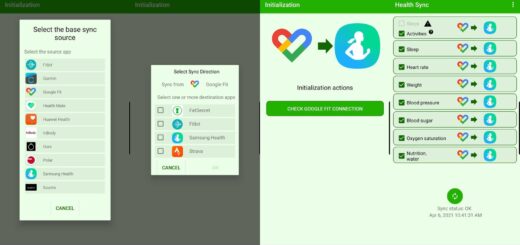Real Estate Taxes vs. Property Taxes: A Guide
The terms “real estate taxes” and “property taxes” are often used interchangeably, but technically, there are differences. Real estate taxes refer specifically to taxes on real estate, while property taxes can apply to other types of personal property as well. Rates can vary significantly from one state or region to another. Real estate taxes are levied annually or semi-annually by local governments based on the assessed value of a residence. Property taxes, on the other hand, can include taxes on movable personal property like cars or boats. It’s important to understand the similarities and differences between these two terms to fully grasp homeowner costs.
Key Takeaways:
- Real estate taxes specifically apply to real property, while property taxes can cover both real property and personal property.
- Real estate taxes are levied annually or semi-annually by local governments based on the assessed value of a residence.
- Property taxes can include taxes on movable personal property like cars or boats.
- Rates for real estate and property taxes can vary significantly from one state or region to another.
- Understanding the differences between these two terms is crucial for accurately understanding homeowner costs and complying with tax requirements.
What is Real Estate Tax?
Real estate taxes are levies based on the assessed value of a residence that a homeowner must pay. These taxes are determined by the local government and can vary greatly depending on the region.
The amount of real estate taxes a person must pay is based on the worth of the home and the region they reside in. To calculate the tax owed, the fair market value of the residence is multiplied by the specified percentage set by each municipality.
Understanding Real Estate Taxes
Real estate taxes, also known as property taxes, play a crucial role in funding local government services such as schools, infrastructure, and public safety. The tax rate is determined by local authorities and can vary based on factors such as location, local tax policy, and economic conditions.
The assessed value of a property is a key factor in determining real estate taxes. Assessments are conducted periodically by local government assessors to determine the current market value of properties. These assessments take into account factors such as property size, location, and the value of comparable properties in the area.
Once the assessed value is determined, the local tax rate is applied to calculate the amount of real estate taxes owed. The tax rate is usually expressed as a percentage of the assessed value. For example, if the assessed value of a property is $200,000 and the tax rate is 2%, the annual real estate tax would be $4,000.
It’s important for homeowners to understand and plan for real estate taxes as they can significantly impact the cost of homeownership. Additionally, real estate taxes are subject to change over time as property values fluctuate and local tax policies evolve.
| Location | Assessed Value | Tax Rate | Tax Owed |
|---|---|---|---|
| City A | $300,000 | 1.5% | $4,500 |
| City B | $500,000 | 2% | $10,000 |
| City C | $800,000 | 2.5% | $20,000 |
What is Property Tax?
Property tax is a broader term that includes real estate taxes but can also refer to taxes on other types of personal property. It can be difficult to comprehend the differences between personal property taxes and real estate taxes. Personal property taxes apply to tangible and movable personal property, such as transportation vehicles. The rates for personal property taxes can vary depending on the jurisdiction and the item being taxed.
Understanding property taxes is crucial for homeowners and individuals who own taxable personal property. While real estate taxes specifically apply to real property, such as land and buildings, property taxes encompass a wider range of taxable assets. These assets can include vehicles, boats, furniture, and other possessions that are considered personal property.
One important distinction to note is that property taxes on personal property, also known as taxes on movable property, are separate from real estate taxes. Real estate taxes are levied on immovable assets, while personal property taxes are imposed on movable assets that can be physically relocated. The rates and assessment methods for personal property taxes vary among different jurisdictions.
Personal property taxes apply to tangible assets, which are possessions that can be physically touched or moved. This can include vehicles, watercraft, recreational vehicles, and other movable items. The rates for personal property taxes are typically determined by the local government and may fluctuate depending on the item’s value and the tax policies of the specific jurisdiction.
To illustrate the application of property taxes, let’s take a look at an example:
| Type of Property | Taxable or Non-Taxable |
|---|---|
| Residential Home | Taxable (Real Estate Tax) |
| Primary Vehicle | Taxable (Personal Property Tax) |
| Furniture and Appliances | Non-Taxable |
In this example, the residential home would be subject to real estate taxes as it falls under the category of real property. On the other hand, the primary vehicle would be subject to personal property taxes because it is considered movable personal property. Furniture and appliances, which are not considered taxable personal property, would not be subjected to property taxes.
Understanding the nuances between real estate taxes and property taxes is essential for homeowners and individuals who own personal property. It ensures compliance with tax obligations and promotes accurate financial planning.
Key Takeaways:
- Property tax covers a broader range of taxable assets, including personal property.
- Personal property taxes apply to movable tangible assets, such as vehicles and watercraft.
- Rates and assessment methods for personal property taxes may vary by jurisdiction.
- Real estate taxes specifically apply to immovable assets, such as land and buildings.
- Understanding the distinction between real estate taxes and property taxes is crucial for accurate financial planning and compliance with tax obligations.

Real Property and Personal Property
When it comes to taxes, understanding the difference between real property and personal property is crucial. Real property refers to land and permanent structures affixed to it, such as a house, while personal property encompasses movable possessions like cars, boats, or RVs.
Real property:
- Includes land and permanent structures
- Examples: houses, buildings, land improvements
- Subject to real property taxes (real estate taxes)
Personal property:
- Encompasses movable possessions
- Examples: cars, boats, RVs
- May or may not be subject to personal property taxes
It’s important to note that not all personal property items are taxed. The specific types of property that are taxed vary depending on local laws and regulations. While real property is typically subject to real estate taxes, personal property may or may not be subject to taxes, depending on the jurisdiction and the item in question.
Understanding the distinction between real property and personal property is crucial for homeowners and property owners to ensure compliance with tax obligations and accurately assess the tax liabilities associated with their assets.
“Real property refers to land and permanent structures, while personal property encompasses movable possessions.”
To further illustrate the difference, here is a table summarizing the key characteristics of real property and personal property:
| Real Property | Personal Property |
|---|---|
| Includes land and permanent structures | Encompasses movable possessions |
| Examples: houses, buildings, land improvements | Examples: cars, boats, RVs |
| Subject to real property taxes (real estate taxes) | May or may not be subject to personal property taxes |

Real Estate Taxes vs. Property Taxes
Understanding the distinctions between real estate taxes and property taxes is essential for homeowners. While these terms are often used interchangeably, it’s crucial to recognize their specific applications and the items they encompass.
Real estate taxes are levies imposed on real property, including land and permanent structures. Local governments typically levy these taxes, with rates varying based on the assessed value of the property. Homeowners are obligated to pay real estate taxes annually or semi-annually, depending on the local regulations.
Property taxes, on the other hand, have a broader scope. They encompass taxes on both real property and certain types of personal property. While real property refers to land and permanent structures, personal property includes movable possessions such as vehicles or boats. State governments may levy property taxes, which can vary based on the jurisdiction and the specific item being taxed.
To better illustrate the differences, let’s take a closer look at the key characteristics of real estate taxes and property taxes:
| Real Estate Taxes | Property Taxes |
|---|---|
| Apply to real property, including land and permanent structures | Encompass both real property and certain types of personal property |
| Levied by local governments | Can be levied by state governments |
| Required for all homeowners | Charged only on specific items |
By clarifying these terms, homeowners can better navigate tax obligations and avoid confusion regarding the specific circumstances under which they are charged. Understanding whether a tax falls under real estate or property can make a significant difference in managing household expenses.
Remember, real estate taxes are tied explicitly to real property, while property taxes have a broader scope that includes both real property and certain types of personal property.
Is a Vehicle Considered Real Property?
When it comes to categorizing vehicles for tax purposes, the classification depends on whether they are attached to the ground or not. A vehicle that is attached to the ground, such as a mobile home that is securely anchored using steel straps, is considered real property. In this case, since the property is immovable, it falls under the scope of real estate taxes. On the other hand, movable vehicles like cars, trucks, and motorcycles that are not permanently attached to the ground are classified as personal property. Consequently, these vehicles are subject to personal property taxes instead of real estate taxes.
An image of a car – representing a movable vehicle considered personal property.
| Vehicle Type | Classification | Tax Classification |
|---|---|---|
| Mobile Home | Attached to the Ground | Real Property |
| Car, Truck, Motorcycle | Not Attached to the Ground | Personal Property |
How Much Are Property Taxes?
Property taxes can vary widely from state to state and even within different regions of the same state. According to the National Association of REALTORS®, the average property taxes paid by owners of single-family homes in 2022 was $3,901. The amount of property taxes you owe is typically based on the assessed value of your home and the tax rate set by your local government.
Property taxes are an important source of revenue for state and local governments and are used to fund various community projects and services.
To understand how property taxes are calculated, let’s take a look at the factors involved:
- Assessed Value: The assessed value of your property is an estimate of its market value as determined by the local government. This value serves as the basis for calculating your property taxes.
- Tax Rate: The tax rate is the percentage of your property’s assessed value that is used to calculate your property taxes. This rate is set by your local government and can vary depending on your location. The higher the tax rate, the more you will owe in property taxes.
Calculating property taxes can be complex, as each jurisdiction may have its own formulas and exemptions. It’s important to review your property tax assessment and understand how it was calculated. If you believe your assessment is incorrect, you may have the option to appeal it.
Example Calculation:
Let’s say your home has an assessed value of $300,000 and your local tax rate is 1.5%. To calculate your property taxes, you would multiply the assessed value by the tax rate:
| Assessed Value | Tax Rate | Property Taxes |
|---|---|---|
| $300,000 | 1.5% | $4,500 |
So, in this example, you would owe $4,500 in property taxes.
Navigating Property Taxes
Navigating property taxes can be a complex task, especially when there are different types of taxes depending on the type of property you own. To ensure compliance with tax requirements and understand your financial obligations, it’s essential to have a comprehensive understanding of the specific tax requirements, rates, and laws in your state or local area.
One option to navigate the intricacies of property taxes is to seek personalized tax help from a professional. A tax pro from H&R Block can provide expert guidance and assistance in understanding and managing property taxes, including real estate taxes and personal property taxes. With their knowledge and experience, they can help you navigate the complexity of property tax laws and regulations, ensuring proper compliance while maximizing any available deductions.
Whether you need assistance with determining the assessed value of your property, understanding the tax rate applicable to your area, or identifying any exemptions or deductions you may qualify for, a tax pro can provide the expertise you need for a smooth property tax experience.
By consulting a tax pro from H&R Block, you can gain peace of mind knowing that your property tax obligations are being handled efficiently and correctly. This allows you to focus on other aspects of homeownership and enjoy the benefits of owning real estate without the stress of deciphering complex tax codes.
When it comes to property taxes, professional guidance can make a significant difference in your ability to navigate the intricacies of the tax system. Don’t hesitate to reach out to a tax pro from H&R Block and ensure you have the support you need to manage your property taxes effectively.
Conclusion
In conclusion, understanding the differences between real estate taxes and property taxes is essential for homeowners. While these terms are often used interchangeably, they have distinct meanings. Real estate taxes specifically apply to real property, which includes land and permanent structures, such as houses. On the other hand, property taxes encompass both real property and personal property, which can include movable possessions like cars and boats.
By comprehending these nuances, homeowners can accurately evaluate their homeowner costs and ensure compliance with tax requirements in their jurisdiction. It’s crucial to be aware of the tax rates and regulations set by local and state governments regarding real estate and property taxes. Having a clear understanding of these concepts can help individuals make informed decisions about homeownership and financial planning.
Whether you’re a current homeowner or planning to buy a property in the future, educating yourself about real estate taxes and property taxes is crucial. By staying informed and seeking professional assistance when needed, you can navigate the complexities of tax regulations and make informed choices for your financial well-being.
FAQ
Are real estate taxes the same as property taxes?
Real estate taxes and property taxes are often used interchangeably, but there are technical differences between the two. Real estate taxes specifically apply to real property, while property taxes can cover both real property and personal property.
What is the difference between real estate taxes and property taxes?
Real estate taxes refer specifically to taxes on real estate, while property taxes can apply to other types of personal property as well. Real estate taxes are levied annually or semi-annually by local governments based on the assessed value of a residence, while property taxes can include taxes on movable personal property like cars or boats.
What are real estate taxes and property taxes?
Real estate taxes are levies based on the assessed value of a residence that a homeowner must pay. Property taxes, on the other hand, can refer to taxes on both real property and personal property.
What are the similarities and differences between real estate taxes and property taxes?
The main similarity between real estate taxes and property taxes is that they both involve levies on property, but the difference lies in the specific types of property being taxed. Real estate taxes specifically apply to real property, while property taxes can refer to taxes on both real property and personal property.
What is the difference between real property and personal property?
Real property refers to land and permanent structures affixed to it, such as a house. Personal property, on the other hand, refers to movable possessions like cars, boats, or RVs. Many personal property items may not be taxed at all.
Is a vehicle considered real property?
Vehicles are considered real property when they are attached to the ground, such as a mobile home anchored using steel straps. In this case, the property is immovable, and real estate taxes apply. However, movable vehicles like cars that are not attached to the ground are considered personal property and are subject to personal property taxes instead of real estate taxes.
How much are property taxes?
Property taxes can vary widely from state to state and even within different regions of the same state. According to the National Association of REALTORS®, the average property taxes paid by owners of single-family homes in 2022 was ,901. The amount of property taxes you owe is typically based on the assessed value of your home and the tax rate set by your local government.
How do I navigate property taxes?
Navigating property taxes can be complex, as there are different types of taxes depending on the type of property you own. It’s important to have an understanding of the specific tax requirements, rates, and laws in your state or local area. Personalized tax help from a professional, such as a tax pro from H&R Block, can also provide guidance and assistance in navigating property taxes.
What is the difference between real estate taxes and property taxes?
While the terms “real estate taxes” and “property taxes” are often used interchangeably, there are technical differences between the two. Real estate taxes specifically apply to real property, while property taxes can cover both real property and personal property. It’s crucial to understand the nuances of these terms to accurately understand your homeowner costs and comply with tax requirements in your jurisdiction.
















It's great that you talked about how business insurance can provide financial protection against unexpected events and help ensure the…
I like that you mentioned how business insurance is essential for protecting your bottom line and the long-term viability of…